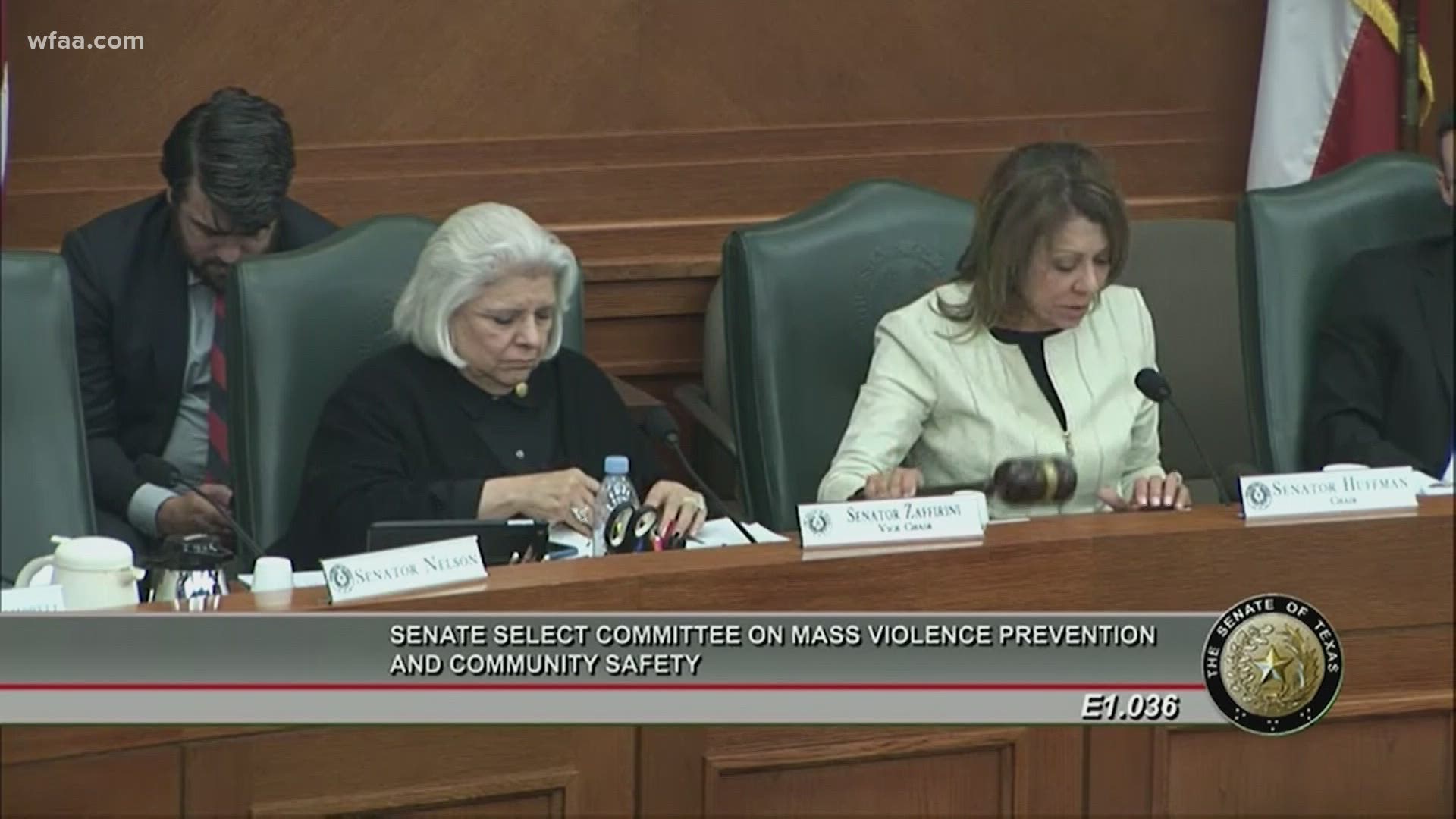Pain doesn’t go away in 12 months but the spotlight often does.
On Aug. 3, 2019, a man who posted a white supremacist manifesto online drove from Allen to El Paso and killed 22 people at a Walmart.
One more victim died months later.
On Aug. 31, 2019, eight people died in another shooting rampage that stretched from Midland to Odessa.
There had been prior mass shootings in Texas – at a high school in Santa Fe, a church in Sutherland Springs, and an ambush that killed police officers in downtown Dallas.
But Texas began to take action after two mass shootings in one month.
Gov. Greg Abbott formed a Texas Safety Commission and Domestic Terrorism Task Force.
He issued multiple executive orders aimed at increasing cooperation among public safety agencies in Texas.
He also released a safety action report that offered suggestions to the legislature.
Lt. Gov. Dan Patrick and Texas House Speaker Dennis Bonnen appointed members to house and senate committees on mass violence prevention and community safety.
The committees began meeting in the fall and held hearings across the state which elicited emotional testimony.
“I urge you to save lives! You represent us!” one man told the senate committee at a hearing in El Paso in October, as he begged for change to gun laws in the state.
Another speaker at the same hearing vehemently opposed reform.
“If you restrict the legal gun owner, all you do is empower the criminal,” the man said.
The senate committee's last hearing was in December; the house committee’s was in January.
Both were scheduled to reconvene in March, but those hearings were canceled because of the pandemic.
And neither has met since.
“We were invited by the Senate to testify March 10, so that was disappointing,” said Gyl Switzer, executive director of Texas Gun Sense.
Switzer had been encouraged by the hearings because she felt like members really listened to the testimony.
“I thought - this is really the only time I’ve seen where there’s whole days devoted to gun violence prevention. And I watched some light bulbs go off,” she said.
Switzer felt optimistic that substantive discussions were happening and would continue to happen.
“The testimony from those hearings was very moving and it hasn’t vanished,” said State Rep. Julie Johnson, D- Dallas, a member of the house committee. “It’s still on my mind.”
She said there remains a “strong desire” to address reforms to Texas gun laws in the legislative session that begins in January, despite COVID-19.
“We still have a need for addressing gun violence because it’s also a public health crisis in our state,” Johnson said. “ It’s the business of the legislature to try our best to address issues when we have the opportunity.”
Johnson said committee members will still issue a report of their findings before the session begins in January.
State Rep. Rafael Anchia, D-Dallas, was one of the loudest voices in 2019 asking the governor to call a special session to focus on gun violence.
“There will be momentum going into the next legislative session because, I’m sad to say, I believe this will happen again, it’s a matter of time,” Anchia said.
“Republicans and Democrats agree on this stuff,” he said. “It’s just getting them passed and implemented that’s the challenge.”
Switzer is hopeful.
“I still think there’s a better chance than probably in the past to pass important legislation,” she said.
Abbott’s office did not respond to an email from WFAA asking how many times the governor’s Texas Safety Commission and Domestic Terrorism Task Force met or whether members have met virtually since the pandemic began.
The governor’s office also did not respond when WFAA asked for any comment on whether coronavirus recovery might overshadow efforts to address gun violence, mass shooting prevention or combat white supremacy in the next legislative session.

